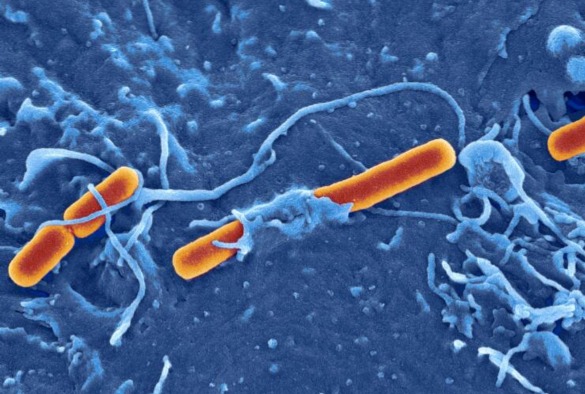
Researchers at the University of Liverpool are working to tackle an increasingly antibiotic resistant bacterium.
The UK Health Security Agency has reported a UK increase in this sexually transmissible bacterium, which has also been identified in countries across Europe. The bacterium, called Shigella sonnei, can cause severe diarrhoea and the strain of interest is resistant to the majority of antibiotics recommended for its treatment.
Experts at the University's National Institute for Health and Social Care Research's Health Protection Unit in Gastrointestinal Infections led an international collaboration between scientists and public health workers from the UK, France, Belgium, Australia, and the United States of America. Together they investigated the genetic makeup and international spread of the bacterium in order to better understand the drivers behind the epidemic and predict and prevent future outbreaks.
By analysing samples of the bacteria found in all the collaborative countries, the team developed greater insight into this antimicrobial resistant outbreak, which disproportionality affects gay, bisexual, and other men who have sex with men (MSM).
Lewis Mason, a Medical Microbiology PhD Student, University of Liverpool said: "Antimicrobial resistance (AMR) is an urgent global public health crisis and our work studying this sexually transmissible intestinal infection played a key role in understanding and addressing the issue of AMR. Through this work we have learnt of the power of collaboration and the progress we've made shows how by cooperating and sharing genomic data we can better detect emerging disease threats around the globe."
Kate Baker, Professor of Applied Microbial Genomics, University of Liverpool says: "Combining pathogen genomic data from across international surveillance systems allows us to pick up the spread of new strains much earlier than previously possible. We saw this with COVID as well and now we need to build on that to make the most of pathogen genomics for tackling antimicrobial resistance."
The UK Health Security Agency (UKHSA) recently issued advice to those who may be affected and which can be found here.
The paper, 'The evolution and international spread of extensively drug resistant Shigella sonnei' (DOI: 10.1038/s41467-023-37672-w) is published in Nature Communications.
Image credit: Shigella flexneri invading embryonic stem cell. David Goulding, Wellcome Trust Sanger Institute.






